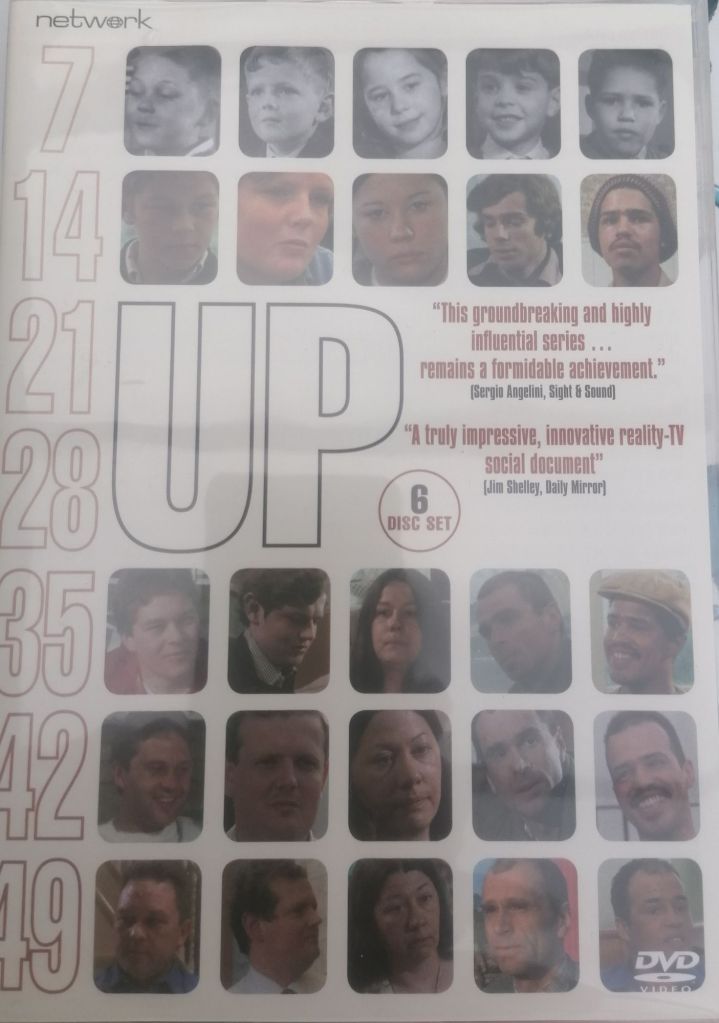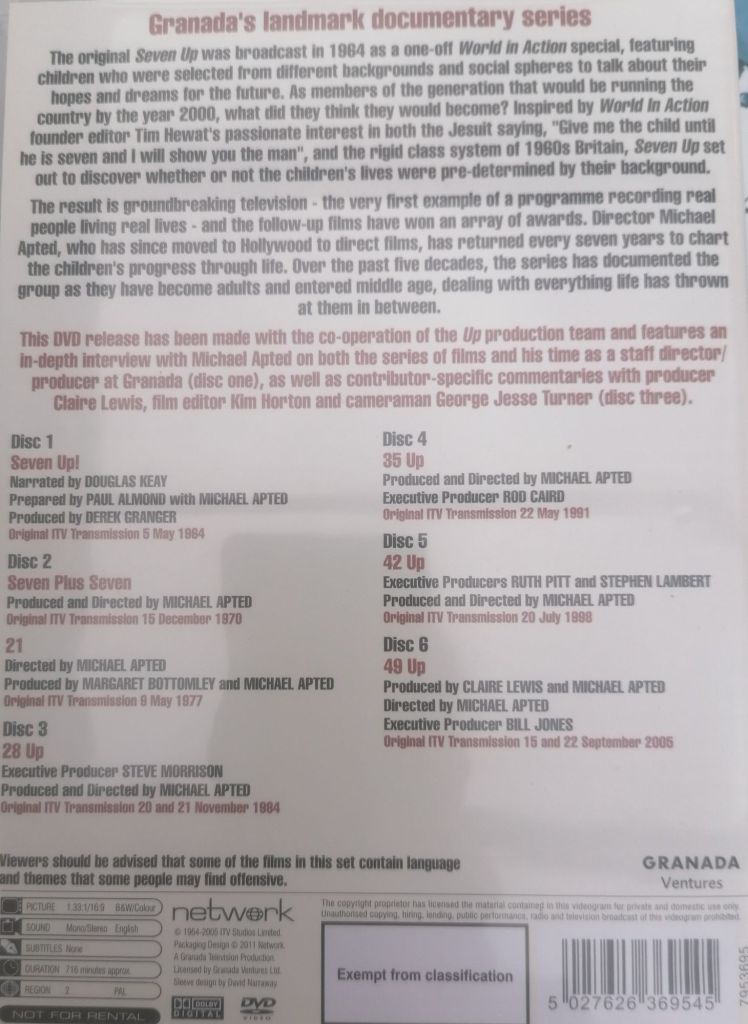7 Up TV Series Re-view Part 2 Seven plus Seven

Catching up with the children
After a chance meeting in the Granada canteen, Michael Apted was commissioned to revisit the 14 children featured in the 7 Up documentary. The original was made in 1963 and broadcast in 1964, while this was made in 1970 and broadcast on December 15 of the same year. All 14 children took part, some more reluctantly than others, and clips of their seven year old selves answering questions help to frame the documentary. Given the age of the participants, and 14 is a very difficult age for all but the most fortunate, this was always likely to see them at their most guarded. However, I think it was absolutely vital for the future of the series. A 14 year gap would not have worked given the way that the children would bear little resemblance to their seven year old selves, but at 14 you have a fascinating glimpse of the child within and the adult to come. So what did I think watching this for the very first time?

7 plus Seven
The filming style is really interesting. We have gone from black and white to colour, but that colour is faded and gives the whole programme the air of a home movie. Gone are the scenes of school, play and family to be replaced by each of the 14 children on their own or in small groups, with an offscreen Michael Apted posing many of the same questions he did seven years earlier, and getting answers both similar and revealingly different.
For me, the star of this show was the most reluctant participant, Suzy. She makes it abundantly clear that she thinks the whole concept is a waste of time! Her eye rolls, impatient answers and undisguised frustration with Apted make her a real standard bearer of teenage irritation with the obtrusive older generation. For me, the best moment was when the family dog, playing in the garden of her father’s 4000 acre farm where she is being filmed, drags a dead rabbit out of the bushes. Suzy is almost completely unfazed, whereas Apted is clearly unsettled, and the reversal of roles is quite satisfying. You can tell that Suzy would rather be anywhere else and that she is doing this under sufferance, but that just makes her a counterpoint that the show needs.
Tony, who wanted to be a jockey at seven is on the way to achieving his ambition by being trained at a local professional stables and obviously eager to leave school behind. He is still confident, although the cheeky seven year old has faded to some extent, and he is fully focused on his chosen career. Interestingly, he is asked what he would do if he didn’t make it as a jockey and he already has a back up career of taxi driver in mind. He is asked the same questions as the other participants, and he answers them easily and confidently. I found myself urging him on as he clearly had ambition, determination and a real thirst for hard work.
Andrew, Charles and John are perhaps the most interesting to listen to five decades on. They are clearly set on the path to upper class success with two having gone to Charterhouse and one to Westminster. Somewhat dismissive of their younger selves, they have lost the more precocious edge they had at seven and developed what to modern eyes looks like a sense of entitlement within a world that perhaps exists as their stage. Their views on class, race and unions would definitely raise some eyebrows these days, but they were very much mainstream and reflective of their upbringing.
Jackie, Lynn and Sue, the three London girls seem to be just as tight knit as they were despite the fact that Lynn had made it to grammar school while the other two went to a comprehensive school. They are chatty, personable and, in their own way, as confident as the three upper class boys. However, and this is simply my own view, their confidence comes from supporting each other rather than competing with each other as Andrew, Charles and John seem to be. They often look to each other for agreement, but when they differ that seems to be just as supported by the other two. It’s a very nice example of that female friendship that seems to be a shield against the slings and arrows of life in general.
The other six boys are all interesting to listen to, but rarely rise above the expected in their answers. Perhaps Neil is the one whose responses were most revealing by the very fact of his nervous demeanour. I got the impression that it was deeper than appearing on camera, and more related to how he saw himself and his position in life. Paul and Symon who were at the same charity boarding school in 7 Up had moved to Australia and back home with his mother respectively. Nick, Peter and Bruce would have their times to shine in later episodes.
My Reaction
I have read a number of reviews from people who did not enjoy this instalment. In contrast, I found it fascinating and vital. Most of us, unless we have had particularly unpleasant teenage years, tend to look back at the age of 14 with rose coloured glasses. This programme lays bare the conflicts, difficulties and basic discomfort of a time when you are trying to find yourself as well as your place in society. Get past the faded colours and different viewpoints and you have a snapshot of what we all go through as teenagers.
